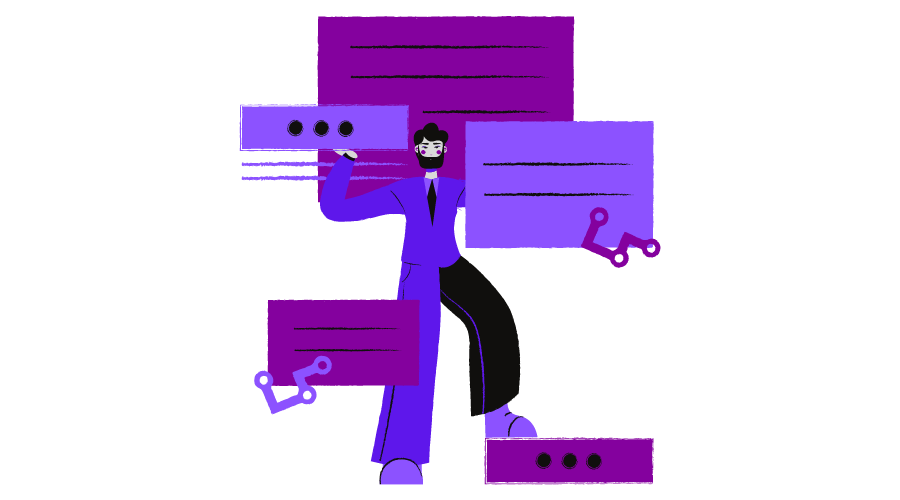The Incredible Art of Making Choices: Nurturing Powerful Decision-Making Abilities
In today's accelerated world, taking effective decisions can sometimes feel challenging. Whether you're faced with critical career choices, personal dilemmas, or daily life situations, the ability to navigate these decisions with certainty and lucidity is fundamental. Strong decision-making skills not just influence our outcomes but also shape our experiences and growth. By understanding the art of choosing wisely, we can cultivate a more rewarding and achieving life.

This piece explores a holistic approach to mastering decision-making skills, offering reliable techniques and insights into the psychological aspects of our choices. From utilizing intuition and critical thinking to avoiding decision fatigue, we will delve into multiple strategies that empower individuals to make improved choices even under pressure. Whether you stand as a leader looking to make tough calls or someone seeking to improve your everyday decision-making, there is important knowledge to gain that can transform how you tackle every decision in your life.
Methods for Efficient Decision-Choosing
Successful decision-making demands a mixture of analytical skills and interpersonal intelligence. One of the the effective methods is the use of decision-choosing frameworks. Such structured approaches help people examine options systematically, ensuring that all relevant factors are considered before arriving at a conclusion. Examples include the benefits and drawbacks list, the SWOT analysis, and the decision matrix. By employing these frameworks, you can achieve clarity and make informed choices with confidence.
Another key technique is to nurture mindfulness during the decision-making process. By being present and aware of your cognition and feelings, you can minimize anxiety and enhance focus. Mindfulness allows you to pause, reflect, and evaluate your options without being burdened by stress or external pressure. This practice not just improves your decision-making skills but also encourages a more profound understanding of your values and priorities.
Lastly, it is crucial to learn from previous decisions, both good and bad. Thinking back on past choices can reveal patterns in your decision-making process, helping you to spot areas for improvement. Adopting a growth mindset enables you to view setbacks as learning moments rather than defeats. This perspective encourages resilience and adaptability, essential traits for making improved decisions in the future. spintax
Understanding the science and Emotional Intelligence in Choices
Comprehending the psychology behind decision-making can significantly enhance our ability to make wise decisions. https://peterashbysmith.com/how-a-coffee-shop-line-taught-me-effective-decision-making/ , emotions, and outside factors all play a crucial role in shaping our choices. Cognitive biases, such as confirmation bias and overconfidence, can distort our decision-making, leading to poor decisions. Identifying these biases allows us to take a step back and evaluate our thinking more analytically. By cultivating self-awareness, we can identify when our choices is affected by our emotions or preconceived notions, enabling a more rational approach toward important choices.
Emotional awareness is essential in dealing with challenging choices, especially under stress. It encompasses the ability to comprehend and manage our feelings and empathize with others. This skill helps us evaluate situations from multiple perspectives, leading to more thoughtful and informed outcomes. When confronted with complex dilemmas, leveraging emotional intelligence allows us to remain composed and focused, fostering better focus and understanding. By identifying our emotional triggers and those of others involved, we can make more balanced choices that take into account the emotional aspect of every situation.
Decision-making is not solely a logical process; feelings are intertwined with our choices. Understanding how to accept and utilize our emotions, instead of ignoring them, can be a crucial benefit. For instance, good feelings can inspire creative ideas, while bad feelings may signal caution. By developing the ability to cope with emotions, we can learn to handle high-pressure scenarios more effectively and make thoughtful decisions that correspond with our principles. In doing so, we cultivate a method of making decisions that is both logical and emotionally attuned, resulting in choices that are more fulfilling and in harmony with our true goals.
Approaches for Addressing Choice Overload
One approach to alleviate decision fatigue is to reduce your options. This can be accomplished by setting explicit priorities and limiting down options before reaching a decision. For instance, establish a set of criteria that is most relevant to you, allowing you to filter options quickly and efficiently. By minimizing the number of choices you face, you can save mental energy and reduce stress.
An additional useful method is to establish routines and make particular decisions habitual. By creating habits around everyday choices, including meals or your morning routine, you free up cognitive resources for more significant decisions. This practice not only decreases the number of decisions you need to make but also fosters a sense of regularity and reliability in your day-to-day life, enabling you to approach more challenging decisions with a more focused mind.
In conclusion, incorporating breaks and mindfulness into your routine can profoundly help in reducing decision fatigue. Taking quick breaks throughout your day to rest your mind can revitalize your cognitive functioning and enhance clarity. Additionally, awareness practices can enhance your awareness of stress and mental clutter, assisting you make decisions with greater focus and intention. By prioritizing self-care and mental clarity, you can improve your overall decision-making skills.